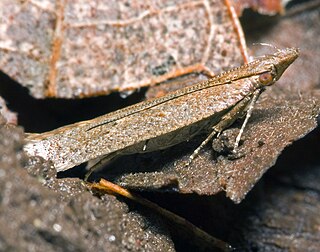
The Gelechiidae are a family of moths commonly referred to as twirler moths or gelechiid moths. They are the namesake family of the huge and little-studied superfamily Gelechioidea, and the family's taxonomy has been subject to considerable dispute. These are generally very small moths with narrow, fringed wings. The larvae of most species feed internally on various parts of their host plants, sometimes causing galls. Douglas-fir (Pseudotsuga) is a host plant common to many species of the family, particularly of the genus Chionodes, which as a result is more diverse in North America than usual for Gelechioidea.

The Lecithoceridae, or long-horned moths, are a family of small moths described by Simon Le Marchand in 1947. Although lecithocerids are found throughout the world, the great majority are found in the Indomalayan realm and the southern part of the Palaearctic realm.

Aristotelia is a genus of moths in the family Gelechiidae. Well-known species are food plant specialists, and diverse hosts are used – Salicaceae, Solanaceae, Rosaceae, Fagaceae, Fabaceae, Asteraceae.

Dichomeris is a genus of moths in the family Gelechiidae erected by Jacob Hübner in 1818.
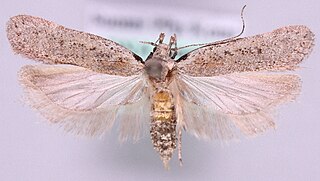
Gelechia is a genus of moths in the family Gelechiidae. The type species is Gelechia rhombella.

Helcystogramma is a genus of moths in the family Gelechiidae. The genus was erected by Philipp Christoph Zeller in 1877.

Keiferia is a genus of moths in the family Gelechiidae.

Glyphidocera is a genus of moths in the family Autostichidae.
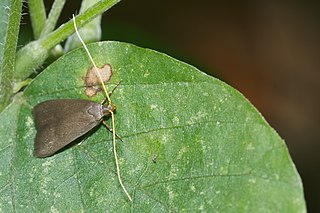
The Lecithocerinae are a subfamily of small moths in the family Lecithoceridae. They are found worldwide, but most species occur in South Asia. The subfamily is characterized by the male genitalia with a bridge-like structure connecting the tegumen and the valva, and the uncus almost always is vestigal with two lobes at the dorsal base, only exceptionally united into a broad plate, but never as a thorn or spine.
Torodora is a genus of moths in the family Lecithoceridae. The genus was erected by Edward Meyrick in 1894.
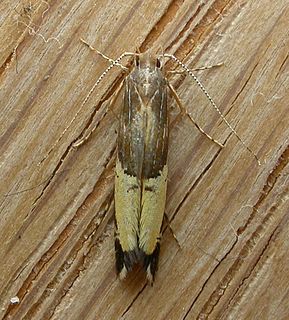
Labdia is a genus of moths in the family Cosmopterigidae.

Limnaecia is a genus of moths in the family Cosmopterigidae.
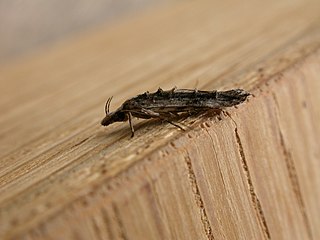
Trachydora is a genus of moths in the family Cosmopterigidae.
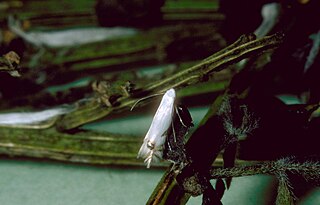
Leucoptera is a genus of moths in the family Lyonetiidae. Its members are leaf borers many of which can cause severe damage to plant crops, such as coffee or apples.

Opostega is a genus of moths of the family Opostegidae with 49 listed species.
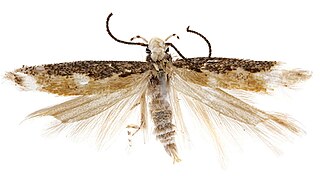
Gelechiinae is a subfamily of moths in the family Gelechiidae. It was described by Henry Tibbats Stainton in 1854.

Anacampsinae is a subfamily of moths in the family Gelechiidae.
Keiferia vorax is a moth in the family Gelechiidae. It was described by Edward Meyrick in 1939. It is found in Argentina.














